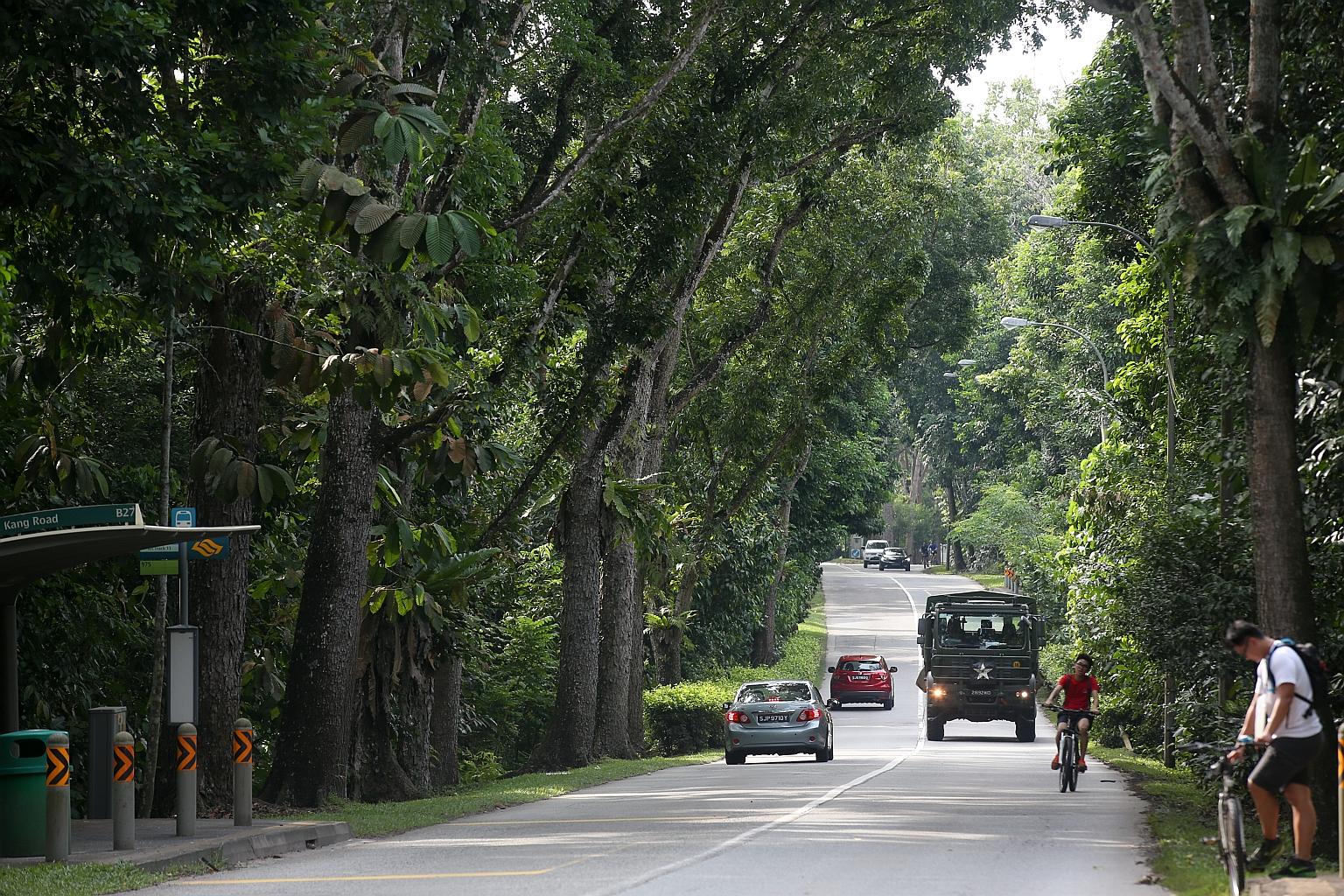Development v saving nature: Project to help assess trade-offs
Sign up now: Get ST's newsletters delivered to your inbox

Besides giving shade and beautifying our roads, trees also help to slow stormwater run-off and help soil absorb more rainwater, reducing the strain on the drainage network.
ST FILE PHOTO
An ambitious project to quantify all the benefits provided by Singapore's natural environment was launched yesterday, aiming to provide a framework for developers to assess the trade-offs between development and conservation.
The project, which will take three years to complete, will determine the economic, social and environmental benefits of the country's forests, parks, waterways and marine habitats.
"In spite of the national effort towards greening the city-state, we still need to know more about how to incorporate nature into holistic planning at a national scale," said a spokesman for the Singapore-ETH Centre, one of the two project leaders. The National University of Singapore is the other project leader.
For example, trees can lower urban temperatures by providing shade and through transpiration, when water evaporates from leaves, stems and flowers. Their other advantages may not be as well known. For example, trees help to slow stormwater run-off and help soil to absorb more rainwater, which reduces the strain on the drainage network.
The team of 30 researchers will create a framework to define Singapore's most important ecosystems, determine their benefits and agree on tools to measure them. They will then assess the current state of the land, coastal and marine habitats, quantifying their economic, societal and environmental benefits.
A computer tool for planners and developers will then be developed that can visualise data on the benefits of natural capital and simulate the impacts of various scenarios.
Singapore-ETH Centre principal investigator Dan Richards said: "This will equip planners and developers to make better-informed decisions and also identify opportunities for the stronger incorporation of natural capital into our urban landscape."
-
30
Number of researchers who will create a framework to define Singapore's most important ecosystems, determine their benefits and agree on tools to measure them.
NParks senior director Lena Chan said: "The research outputs of the project would further enrich the suite of tools and techniques that NParks and other agencies have developed for evidence-based urban planning, development and management."


